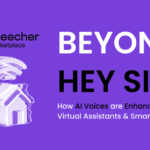Voice cloning, a technology that can mimic a person’s voice with uncanny accuracy, is rapidly advancing. While this innovation has exciting applications in fields like entertainment and accessibility, it also raises significant ethical concerns.
Imagine a world where anyone could create a digital replica of your voice and use it for anything from impersonating you to spreading misinformation. The potential for misuse is both alarming and intriguing. As we delve into the ethical implications of voice cloning, we’ll explore the challenges it poses and discuss potential solutions to ensure this powerful technology is used responsibly.
My Proven Way to Make $100-$200 Per Day With 0 Investment – Watch THIS FREE Video to START >>

Privacy and Consent
The implications of voice cloning technology on individual privacy are profound. Voice data, once considered relatively innocuous, is now a valuable commodity that can be used to create highly realistic synthetic voices. This raises serious concerns about the potential for misuse and the erosion of personal privacy.
One of the primary ethical considerations is the use of voice data without explicit consent. Many people unknowingly provide their voices to various online platforms, such as social media, voice assistants, and call centers. This data can be collected, stored, and potentially used to create cloned voices without the individual’s awareness or permission.
The potential for misuse of cloned voices is another major concern. Malicious actors could use synthetic voices to impersonate individuals, engage in identity theft, or spread misinformation. For example, a scammer could use a cloned voice to trick someone into revealing sensitive information or transferring money. This could have serious financial and emotional consequences for the victim.
Additionally, the widespread availability of voice cloning technology could make it easier for anyone to create and distribute deepfakes. Deepfakes are manipulated media, such as videos or audio recordings, that can be used to spread disinformation or harm the reputation of individuals. This could have far-reaching implications for society, as it becomes increasingly difficult to distinguish between real and fake content.
Intellectual Property Rights
The ownership of voices and the legal implications of voice cloning are complex and evolving areas of law. As voice cloning technology advances, it raises questions about the rights of individuals and businesses to control their voices and protect them from unauthorized use.
One of the primary concerns is the potential for copyright infringement. In some jurisdictions, voices may be considered intellectual property that can be protected by copyright law. This means that individuals or companies may have exclusive rights to use, reproduce, or distribute their voices. If a voice is cloned without permission, it could be considered copyright infringement.
Trademark violations are another potential legal issue. If a voice is associated with a particular brand or product, it may be protected by trademark law. Using a cloned voice to promote a competing product or service could constitute trademark infringement.
Determining ownership rights when voices are synthesized or manipulated can be challenging. For example, if a voice is created using a combination of different voices or sound effects, it may be difficult to determine who owns the rights to the resulting synthetic voice. Additionally, the boundaries between original and derivative works can be blurred when it comes to voice cloning.
As voice cloning technology continues to develop, it is likely that new legal frameworks and standards will be needed to address these issues. This could involve developing guidelines for the use of voice data, establishing clear ownership rights for synthetic voices, and creating effective mechanisms for enforcing intellectual property laws.
My Proven Way to Make $100-$200 Per Day With 0 Investment – Watch THIS FREE Video to START >>
Deepfakes and Misinformation
Deepfakes are highly realistic, artificially generated media, such as videos or audio recordings, that can be used to manipulate reality. By using advanced machine learning techniques, deepfakes can convincingly replace a person’s face or voice with that of another individual.
The potential for deepfakes to spread misinformation is a major concern. Malicious actors can use deepfakes to create fake news, propaganda, or even blackmail material. For example, a deepfake video could show a public figure making a controversial or harmful statement, damaging their reputation.
The ethical concerns of using voice cloning to create deepfakes for malicious purposes are significant. Deepfakes can be used to manipulate elections, undermine trust in institutions, and even incite violence. This raises questions about the responsibility of those who create and distribute deepfake content, as well as the need for safeguards to prevent their misuse.
Detecting and combating deepfake content is a complex challenge. While there are ongoing efforts to develop tools and techniques for identifying deepfakes, they are often difficult to detect, especially for the average person. This makes it difficult to prevent the spread of misinformation and protect individuals from harm.
As deepfake technology continues to advance, it is essential to develop effective strategies for detecting and combating deepfakes. This could involve a combination of technical solutions, such as machine learning algorithms and digital forensics, as well as public awareness campaigns and regulatory measures.
Social and Cultural Implications
The social and cultural implications of voice cloning technology are far-reaching. As this technology becomes more accessible and powerful, it could have significant impacts on our relationships, our understanding of identity, and our broader social fabric.
One of the potential impacts of voice cloning is on marginalized groups. Individuals from marginalized communities, such as those with disabilities or from minority ethnic groups, may be particularly vulnerable to the misuse of voice cloning technology. For example, their voices could be used to create deepfakes that perpetuate harmful stereotypes or discrimination.
Additionally, voice cloning could have implications for individuals with unique voices, such as celebrities or public figures. Their voices may be seen as valuable assets that can be exploited for commercial gain. This could raise concerns about the commodification of identity and the potential for individuals to lose control over their own voices.
Voice cloning technology could also be used to perpetuate stereotypes or discrimination. For example, a deepfake could be created to show a minority group member saying something offensive or harmful, reinforcing negative stereotypes. This could contribute to a climate of fear, prejudice, and division.
As voice cloning technology continues to evolve, it is important to consider the potential social and cultural implications. This includes developing ethical guidelines for the use of voice cloning, protecting the rights of individuals whose voices may be exploited, and promoting diversity and inclusion in the development and use of this technology.
Regulation and Governance
The ethical concerns raised by voice cloning technology necessitate the development of robust regulations and governance frameworks. These frameworks should address the privacy implications, intellectual property rights, and potential for misuse associated with this technology.
Data privacy laws play a crucial role in protecting individual rights. These laws can regulate the collection, storage, and use of voice data, ensuring that individuals have control over their personal information. By requiring explicit consent for the use of voice data, data privacy laws can help prevent unauthorized cloning and misuse.
Intellectual property laws also provide a framework for protecting rights related to voice cloning. These laws can establish ownership rights for voices and protect individuals and businesses from unauthorized use of their intellectual property. By defining the boundaries of permissible use, intellectual property laws can help prevent copyright infringement and trademark violations.
Content moderation policies are another important aspect of regulating voice cloning. These policies can help prevent the spread of harmful or misleading content, such as deepfakes and misinformation. By establishing guidelines for the removal of harmful content, content moderation policies can help protect individuals and society from the negative consequences of voice cloning.
Developing effective regulations in a rapidly evolving technological landscape presents significant challenges. Voice cloning technology is advancing rapidly, and new applications and techniques are emerging constantly. This makes it difficult to anticipate all potential risks and develop regulations that are both effective and adaptable.
To address these challenges, it is essential to adopt a flexible and adaptive approach to regulation. This could involve creating a regulatory framework that is based on principles and guidelines, rather than specific rules. Additionally, it may be necessary to establish mechanisms for ongoing review and updating of regulations as technology evolves.
My Proven Way to Make $100-$200 Per Day With 0 Investment – Watch THIS FREE Video to START >>
Conclusion
The ethical implications of voice cloning technology are complex and far-reaching. As this technology continues to advance, it is essential to address the concerns related to privacy, intellectual property, and potential misuse.
By developing robust regulations and governance frameworks, we can help ensure that voice cloning technology is used responsibly. This includes protecting individual rights, preventing harmful content, and promoting ethical development and use. By taking a proactive approach to addressing these challenges, we can harness the benefits of voice cloning technology while mitigating its risks.









